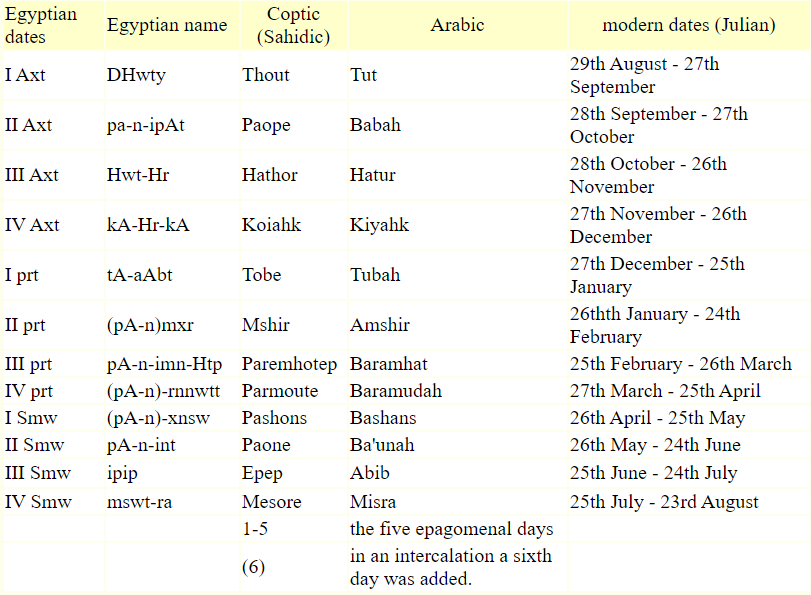Note: The following is a pilpulistic calculation I made based on a Rashi from the parsha, only to discover at the end that the question was more or less answered at the end of the midrash Rashi is quoting from...either way, I thought it was a fun exercise at the time.
Rashi on the verse in Beresheet 39:11 says:
>"AND IT CAME TO PASS ON A CERTAIN DAY — This means as much as “and it came to pass when a certain distinguished day arrived” — a day of merriment, a day of their sacred feast when they all went to the temple of their idols..."
The question is, could one figure out which ancient Egyptian holiday was this?
[According to Rabbi Yehudah Zoldan](https://daf-yomi.com/DYItemDetails.aspx?itemId=2513), the day that Yosef was put in jail was Rosh Hashanah. Per this, we can calculate which day it was on the Egyptian calendar.

According to this chart from the [UCL site](https://www.ucl.ac.uk/museums-static/digitalegypt/chronology/calendar.html), in the Julian calendar, September, the non-Jewish month Rosh Hashanah usually comes out on [^1], is parallel to the Egyptian month of Thoth, which is the first month of the Egyptian year. In the month of Thoth [there were several festivals](https://www.ucl.ac.uk/museums-static/digitalegypt/ideology/festivaldates.html), and some of them match the description Rashi gives us and what we know about Potiphar:
a. The first day of the month was the Egyptian New Year's Day and the birthday of the Egyptian sun deity, Ra-Horakhty.
b. The fifteenth of the month was the Day of giving offerings to Hapy and Amun to secure a good flood.
c. The twentieth of the month was the Day of Tekh - the day of drunkeness.
Option a. works because the name Potiphar is derived from the name of the god Ra and means Pt-P-Ra or "servant of Ra". Option b. works because Amun was also a sun deity who at one point had been merged with Ra (although likely much later than this story). Option c. works because Rashi describes the festival as "a day of merriment", something that goes well with drunkeness.
So which is it? For this we have the midrash Rashi is quoting from, [Tanchuma Vayeshev 9](https://www.sefaria.org.il/Midrash_Tanchuma%2C_Vayeshev.9.2?vhe=Midrash_Tanchuma_--_Torat_Emet&lang=bi&with=all&lang2=en):
>"R. Judah maintained: A fete in honor of the Nile was being held on that day, and all the people had journeyed to the river..."
Or in other words, the answer is option b., the day of giving offerings to Hapy and Amun to secure a good flood, on the 15th of Thoth (Hapy being the god of the Nile).
[^1]: This is from when the Julian calendar was first made, as a parallel to the Egyptian calendar and was still accurate.


















